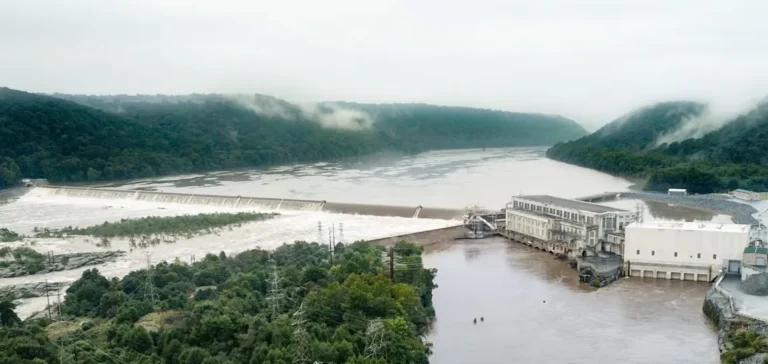Brookfield Asset Management and Google have announced the signing of a hydroelectric framework agreement to supply up to 3,000 megawatts (MW) of hydropower across the United States. According to Brookfield, this is the largest global agreement of its kind concluded to date between an investment company and a technology sector player. The initial contract concerns the purchase of output from the Holtwood and Safe Harbor hydroelectric plants, both located in Pennsylvania, for a total capacity of 670 MW and a value exceeding $3 billion.
An unprecedented framework for hydropower and technology
This framework agreement, called the Hydro Framework Agreement (HFA), gives Google the opportunity to acquire electricity from US hydroelectric plants whose lifespan will be extended by modernisation works or licence renewal. The facilities concerned, operated by Brookfield Renewable Partners, will be the subject of twenty-year Power Purchase Agreements (PPA). The first assets involved are located in Pennsylvania and are currently undergoing licence renewal.
The parties indicate that the agreement initially targets the electricity markets in the Mid-Atlantic region (PJM) and the Midwest (MISO), with possible extension to other parts of the country. Brookfield states that the structure of the contract will allow the supply to historic clients such as Amtrak, already supplied by the Safe Harbor plant, to be maintained.
A twenty-year partnership for energy supply
The value of more than $3 billion in agreements signed today concerns the capacities of Holtwood and Safe Harbor. The two partners rely on a long-term model with a contract period of twenty years, guaranteeing Google visibility on the energy supply for its data centres in the region covered by the PJM grid.
Amanda Peterson Corio, head of energy for data centres at Google, stated in the press release that this partnership aims to ensure a reliable power supply in this strategic market. Connor Teskey, President of Brookfield Asset Management, indicated that this project highlights the ability of hydropower to meet the growing demand of the digital and artificial intelligence sector.
Implications for the energy value chain
The framework agreement signed between Brookfield and Google is part of a trend marked by long-term contracts between electricity producers and major technology consumers in the United States. Brookfield notes that the flexibility of this framework will allow the selection of hydroelectric assets requiring modernisation or licence renewal, thus extending their operation and contribution to the electricity grid.
The signing of these contracts comes amid increasing electricity demand from the information technology sector. The announced volume of 3,000 MW, if fully deployed, would represent one of the largest allocations of hydropower to a technology player worldwide. According to Brookfield data, the facilities concerned will continue to feed the grid, including existing clients.






















